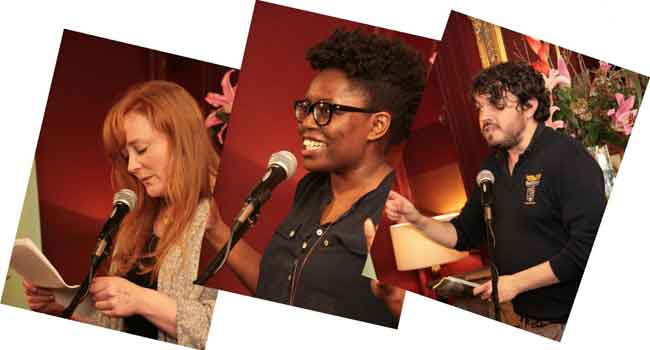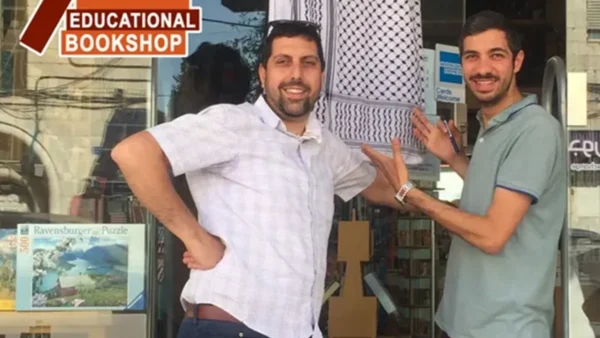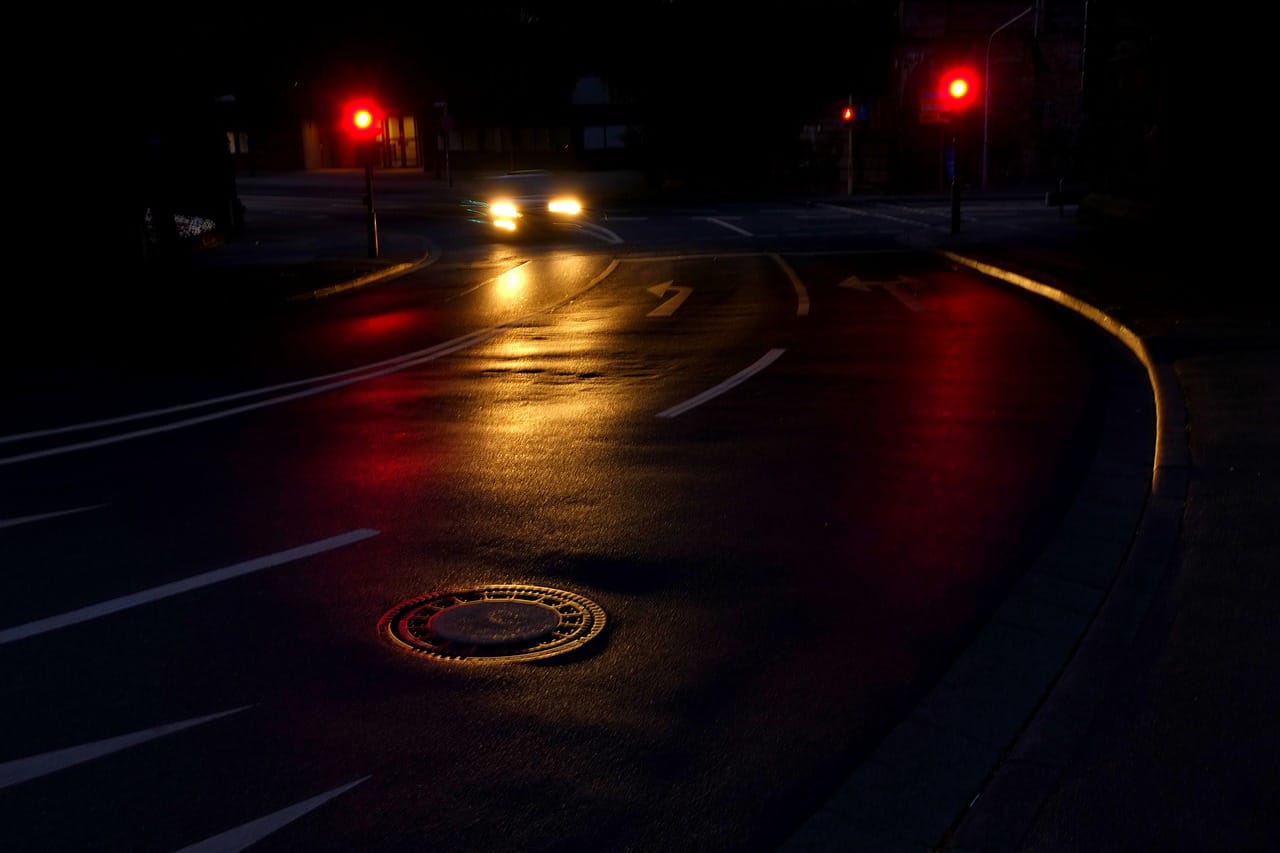 I have a bad habit, sometimes, of generalising about what “writers” are like, mostly based only on my own experience. Last night I got a good reminder that there are many different kinds of writer.
I have a bad habit, sometimes, of generalising about what “writers” are like, mostly based only on my own experience. Last night I got a good reminder that there are many different kinds of writer.
I was performing at an event called “Stand up for Books“, organised by the Society of Authors and the Society of Young Publishers. I was one of six authors reading from their work. Not only was the writing itself very varied in style and subject matter, but the way we behaved on stage was very different too.
The generalisation I tend to make is that writers are people who like to lock themselves away in a room of their own and type away furiously at a manuscript for months on end, and therefore are not ideally suited to standing up on a stage, reading, telling anecdotes and entertaining people in all the ways that seem to be increasingly expected of them these days.
What I learnt last night was that this is not necessarily true.
Some of the other writers truly owned the stage, looking as comfortable and confident as any stand-up comic or other professional performer. The most entertaining was poet Ross Sutherland, who does this sort of thing all the time, organising a regular ‘literary cabaret’ in east London and doing a one-man show, as well as developing a piece of interactive theatre called “Comedian dies in the middle of a joke”.
The compère, Guardian writer Bim Adeyumni, was also brilliant. She’d forgotten all her notes, but still had the audience laughing and clapping wildly as she gave a series of off-the-cuff remarks. Her introduction to my reading somehow made me sound like a real literary heavyweight, which is not something I’ve experienced before. And she got a good laugh out of my name, saying she’d love to have a name like that herself so that she could introduce herself as “Bim Blackwoman” and ask people “Do you have a problem with that?” It was all so natural, so off-the-cuff, so funny.
I, on the other hand, am the sort of person who only thinks of the right thing to say when it’s about an hour or two too late. On the train on the way home, I went through the evening in my head and came up with half a dozen charming or hilarious responses I could have given when I went up to the microphone. But in the moment itself, I said nothing. I walked up on stage, smiled awkwardly, adjusted the microphone and began to read.
I think my reading went fine, but it was just that: a reading, not a performance. I’ve worked hard to overcome my discomfort in front of large audiences, but still I think it shows through. Sitting at home writing the story is what I love, because in the quiet of my room I can get the words just right, express exactly what I want to say. I can order the world retrospectively in the same way as I retold the story of the “Stand up for Books” evening to myself on the train home, forming a version in which I said the right things instead of being stuck for words.
In spite of my discomfort, I still enjoyed the event, and am glad I did it. It was good to meet very different kinds of writer from myself, and to listen to and enjoy their work. I’m reminded that there’s a whole world out there of spoken word events, open mic nights, literary salons and poetry slams. If I keep practising, and maybe get some training from someone who can help me improve my reading, there’s no reason I can’t be a part of that world. It’s very different from what I’m comfortable with, the traditional role of a writer sitting at home forming words on a page and periodically sending those words out into the world in chunks of bound paper. But it seems to be the way the world is going, and maybe that’s a good thing. It’s a lot for me to learn, but learning new things is a big part of what makes life interesting. If I shrank from doing things that made me uncomfortable, I’d probably never have become a writer in the first place. So expect to see me in the coming months at a literary event near you. Maybe at one of them, I’ll finally manage to produce a witty, off-the-cuff remark some time before the evening ends.




There are 17 comments
I’ll bet you were great. And the first event, well, ouf, I hope no one remembers my first lecture! I rather wish I didn’t.
There’s a book I read which was excellent about improving performance skills only of course I can’t quite remember either the author’s name or title, sigh. I’ll see if I can dredge it up from my memory, and if so I’ll pass the details on.
Thanks! Actually it wasn’t my first event – sorry if I gave that impression. I’ve done quite a few readings, but just never felt very comfortable doing them. I think I’ve improved, and hope I can get better if I do more. Thanks for recommending the book with no title or author 😉 Don’t worry, it happens to me all the time! I would love to get the details, though, if you do remember.
I would have liked to attend this.
Every profession (if writing literary fiction is even a profession, but that’s another debate) has its image. Yes, when we think “writer” we think about someone writing in the solitude of their room.
When we hear “accountant”, we see a bald man bend on endless list of figures, shy and boring. You don’t imagine a sexy interesting woman.
I totally understand your discomfort when you speak in public and also the part about finding the appropriate responses long after. I’m like you. I think one can only improve by practising and probably work with a coach. But it never erases who we are deep inside and even if training can ease the discomfort, I don’t think it can turn a shy person into a show man.
I also understand your design not to shy away from these moments, even if it’s difficult. I dread business diners, I never know what to say and I go there with leaded shoes, thinking “I hope I won’t be seated near a man who can only speak of soccer, golf, cars and wine or I’m screwed” 🙂
Hi Emma
You’re right, every profession has its stereotype, and accountancy probably has one of the worst! I do wonder, though, whether it’s possible for the stereotype to change over time. There are so many more events now, and writers are becoming more like media personalities (and media personalities are calling themselves writers!). Maybe the image of the bookish recluse will be replaced by the image of the suave panellist…
I think you’re right, though, training and practice can only go so far. I can certainly sympathise on the business dinners – I used to dread those too, when I worked in banking. Golf is tedious enough to play or watch, but to talk about at dinner? Makes you want to stab yourself in the leg with the fork.
This post makes you seem utterly endearing, Andrew. I happen to like the awkward among the varying shades of cool out there. I’m one that attends poetry events, as a poetry writer it helps to immerse myself into that other world of “performance poetry,” there’s something to learn out of every situation, I figure. I’ve yet to do a reading of my own work and it’s always a troubling thought to imagine how my presence would affect a room. All the sentiment aside, I enjoyed reading this, I even laughed at times. Just continue being you, even awkwardly, I’m sure that there are many other Lucindas out at these readings 🙂
Thanks Lucinda! You see, that’s why I like to write – in a written post I can perform the miracle of making myself seem utterly endearing 😉
You make a good point, though – it’s impossible to know how people react, and probably there are people who respond well to the slight awkwardness. I could work really hard to come across as smooth and witty, and have people thinking “Wow, I hate this smug guy…”
Good luck with the performance poetry! I hope you do a reading of your own work soon, as I have a feeling it would be good. Staking things out from the audience is a good first move, though! Thanks for the comment – it made me feel better.
Hindsight is a wonderful thing and thinking on your feet can be difficult. Maybe taking part in events as a member of the audience would help? (that said for all I know you could be doing that a lot already). Emma’s said what the stereotype is, and I think when it comes to reading/book events, we kind of view it differently, not expecting as much of a performance.
Hi Charlie, Yes, it’s tough! I do go to a lot of events as an audience member, but guess what? I don’t say anything. To anybody. I suppose I could learn from other people and how they handle things, but I think the problem is more fundamental: my brain just doesn’t seem to work very fast when it’s in a social situation. It seems to introduce a few seconds of utter blankness before the appearance of thought, and that makes it difficult to make off-the-cuff remarks. Still, as I said, I am undeterred, and I’m sure I’ll get better eventually!!
You should join a Toastmasters club near you! It will greatly improve your public speaking. Nice blog!
Thanks Tomi! Toastmasters is a good idea. My publisher has been in touch with quite a few events organised, though, so I should be getting plenty of practice in the coming weeks and months 🙂
Loved this post Andrew. My thoughts are “don’t try to be what you’re not”. That’s not to say that we shouldn’t step out of our comfort zones every now and then, or shouldn’t do things to develop our skills (like join Toastmasters), but not all of as are going to be the witty star of the show. You can tell where I might fall on this spectrum can’t you? I’ve been to quite a few literary events over the years – like you I’m sure – and have heard them al from the extroverted very funny raconteur-skilled writers across the spectrum to the hermit-like shy ones who get up, read, and sit down without even taking questions (like JM Coetzee for example). I’ve appreciated them all – except for those who hogged the stage for too long! Even a good raconteur can become tiring after a time! I say, be comfortable with who you are, first, and then develop some skills if that will help your comfort level.
Thanks, that’s good advice! Yes, I’ve been to lots of events too. Interesting to hear about JM Coetzee. I’ve never seen anyone as shy as that, although they have certainly been all across the spectrum. I think it’s true that I’ll never be the star of the show, but I would like to inch my way up the spectrum and put some distance between me and Mr Coetzee 🙂
Oh boy, I went on too long didn’t I!
Not at all!
I love and follow your writing. I think you express yourself beautifully and I believe you could replicate that in your speaking. Yes, you never get to revise and edit your words before a live audience as you would in your writing, but speaking isn’t all that different from the art of writing. The book “Pubic Speaking for Success” by Dale Carnegie would show you how to harness your sublime powers of expression even on stage. I strongly recommend you get the book, I trust you’d find it useful.
Hi Samuel
That’s very kind of you! I suppose that just because I feel more comfortable writing rather than speaking, it doesn’t mean they’re completely different. I will look for that book, and see if I can improve. Thanks for the recommendation, and the kind words!